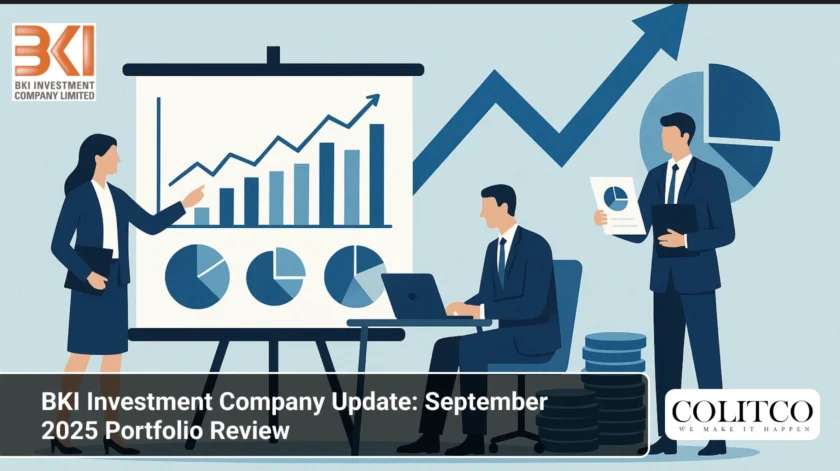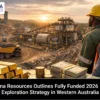The BKI Investment Company (ASX: BKI) has released its September 2025 NTA and Monthly Report, which demonstrates stable long-term performance despite the equity markets experiencing short-term volatility. The diversified investment group, which is under the management of Contact Asset Management, keeps on showing its strength through its portfolio by providing dividends regularly at a high level and adopting a disciplined approach towards costs.
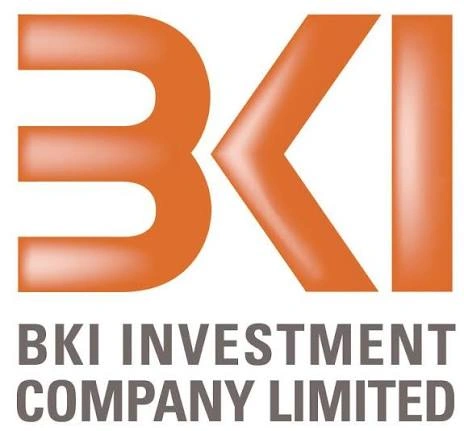
BKI reports steady long-term performance despite short-term market volatility
How Did The Australian Market Perform In September 2025?
Australia’s equities faced challenges in September. The S&P/ASX 300 Accumulation Index, the only major global benchmark that fell, marked a decline of 1.7% in the S&P/ASX 20 Index, thereby pulling down broader market sentiment.
BKI’s Total Shareholder Return (TSR) stood at negative 0.8% in the month. However, it was the diversified nature of its portfolio that eased the impact. The Materials and Utilities sectors were driving forces behind the minor upticks, going up by 6.5% and 0.7% respectively.
The company’s investments in BHP Group, APA Group, and Dalrymple Bay were favourable contributors. BHP increased by 0.7%, while APA Group and Dalrymple Bay ascended by 1.7% and 1.5% respectively. These performances validated BKI’s strategy of long-term, income-oriented investments in well-managed, high-yielding companies.
What Dragged Down The BKI ASX Portfolio Performance?
Despite the fact that the Materials and Utilities sectors had a good performance, the Energy sector faced difficulties. The stocks falling in the Energy sector alone led to a 9.1% loss for the month and thus caused a significant impact on BKI’s returns.
Among the Top 25 holdings, Woodside Energy was the biggest loser with a 12.8% drop. Besides, New Hope Corporation (NHC) suffered an 8.5% decrease in spite of presenting impressive FY25 results. In fact, NHC not only increased its saleable coal production by 18.1% but also declared a fully franked final dividend of 15cps—still, the whole scenario was overpowered by the negative market sentiment.
Thus, it seems there will be a lot of swings in the energy markets as the company fundamentals are strong, but investor caution is still there.
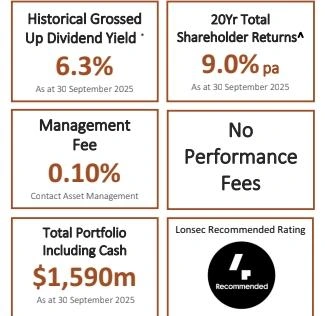
Harvey Norman Leads Gains Amid Consumer Recovery
Harvey Norman (HVN) was the star performer among stocks, with the stock price increasing by 10.5% in September as a result of the excellent FY25 result. Retailing in Australia accounted for a major part of the company’s revenue growth, which was further supported by overseas expansion and a strong property valuation increase.
Harvey Norman announced a fully franked final dividend, which was 21% higher than the previous half-year’s dividend. The retailer began FY26 with a comparable sales increase of nearly 9%, which was a sign of the consumer’s renewed confidence in the post-COVID refresh cycle for electronics and home technology.
The upturn in consumer spending on electronics and home technology helped the company maintain its position in the market. This reflects BKI’s strength in being diversified across various Australian industries and so reaping the benefits of the downturn in other sectors.
RBA Rate Decision Dampens Investor Sentiment
In September, the Reserve Bank of Australia (RBA) decided to maintain the official cash rate at 3.60%. However, the markets reacted rather pessimistically, as the belief in a rate cut in November got weaker.
The mood among investors turned more cautious and, as a result, there was slight profit-taking and lower risk tolerance. The market’s perspective is now that there will only be one more rate cut of 25 basis points, which is going to happen in early 2026 at the latest.
This monetary policy posture has, for a short while, brought down the momentum of equities, but on the other hand, BKI’s prudent management of its portfolio has prevented it from experiencing a huge downturn.
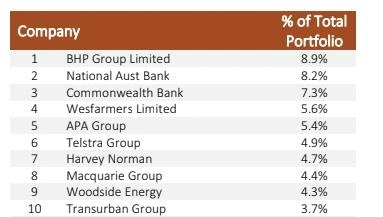
BKI’s Portfolio Strength And Dividend Stability
BKI declared a pre-tax NTA of $1.96 and a post-tax NTA of $1.79 on the 30th of September 2025. The company’s shares were trading at $1.785, which indicated a very slight change in valuation since the market was uncertain at the time.
The total value of the company’s shares in the stock market was $1.441 billion, with an investment portfolio valued at $1.511 billion and cash reserves of $79 million. BKI is a debt-free company, which is a clear indication of its prudent capital management.
BKI has always been a source of good returns to the investors, as proved by 9.0% per annum total shareholder return in the last 20 years. The dividend for the last 12 months was 7.90cps, which is 1% up from the previous year.
The dividend yield, which is grossed up, is now at 6.3% and the support comes from full franking credits. The company’s Dividend Reinvestment Plan (DRP) is still in place, which is a clear indication of its long-term dedication to shareholder value.
Why Is BKI Investment Company A Long-Term Favourite?
With a Management Expense Ratio (MER) of 0.166% and an external management fee of just 0.10%, BKI is still one of the most cost-effective listed investments on the Australian Securities Exchange (ASX).
Over the last two decades, BKI shares, if taking all dividends as reinvestments, would have given a total price of $7.74 per share by 30 September 2025.
The company’s steady dividend payout and long-term strategy have secured it a Lonsec Recommended Rating, which in turn confirms the company’s performance in terms of return reliability and a low-cost structure through the years.
The largest BKI holdings, which are BHP Group, NAB, Commonwealth Bank, Wesfarmers, and APA Group, combined almost make up 35% of the entire portfolio value, thereby granting the investors access to the most stable corporations in Australia.
Also Read: A Smiling Signal: Why Income Investors Are Liking These Top 3 ASX Dividend Shares Right Now
FAQs
- What is the focus of BKI Investment Company’s strategy?
BKI aims at investing in profitable, high-yield and well-managed Australian companies for the long term.
- How did BKI perform in September 2025?
BKI’s Total Shareholder Return decreased by 0.8%, with a combination of strong performance in the Materials and Utilities sectors counterbalancing the weakness in the Energy sector.
- What dividend did BKI pay in FY2025?
BKI announced a full-year dividend of 7.90cps, representing a 1% increase from the prior year, and therefore being fully franked.
- What is the return of BKI over 20 years?
BKI delivered a 20-year total shareholder return of 9.0% per annum, supported by reinvested dividends.

